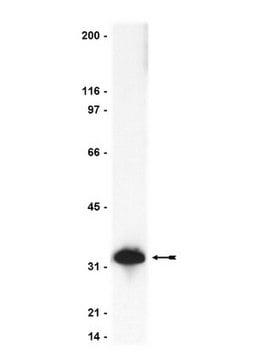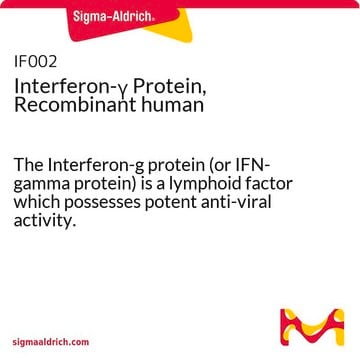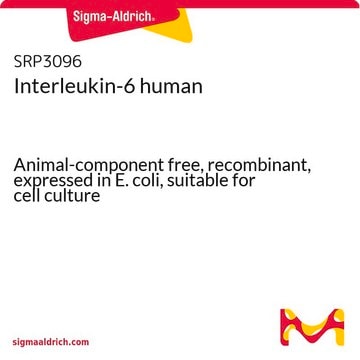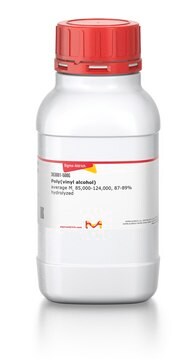T1568
Thrombopoietin human
recombinant, expressed in E. coli, lyophilized powder, suitable for cell culture, ≥98% (SDS-PAGE and HPLC)
Synonym(s):
MGDF, Megakaryocyte colony-stimulating factor, TPO, c-MPL ligand
About This Item
Recommended Products
biological source
human
Quality Level
recombinant
expressed in E. coli
Assay
≥98% (SDS-PAGE and HPLC)
form
lyophilized powder
potency
≤1.0 ng/mL ED50
mol wt
18.6 kDa
packaging
pkg of 5 μg
storage condition
avoid repeated freeze/thaw cycles
technique(s)
cell culture | mammalian: suitable
impurities
endotoxin, tested
UniProt accession no.
storage temp.
−20°C
Gene Information
human ... THPO(7066)
Looking for similar products? Visit Product Comparison Guide
Related Categories
Application
Biochem/physiol Actions
Physical form
Analysis Note
Storage Class Code
11 - Combustible Solids
WGK
WGK 3
Flash Point(F)
Not applicable
Flash Point(C)
Not applicable
Personal Protective Equipment
Certificates of Analysis (COA)
Search for Certificates of Analysis (COA) by entering the products Lot/Batch Number. Lot and Batch Numbers can be found on a product’s label following the words ‘Lot’ or ‘Batch’.
Already Own This Product?
Find documentation for the products that you have recently purchased in the Document Library.
Customers Also Viewed
Articles
Read article on hematopoietic cytokines and hematopoiesis
Our team of scientists has experience in all areas of research including Life Science, Material Science, Chemical Synthesis, Chromatography, Analytical and many others.
Contact Technical Service







